On the eve of World Sleep Day in 2022, the China Sleep Research Association and other institutions jointly launched the 2022 White Paper on Healthy Sleep for Chinese Nationals (hereinafter referred to as the “White Paper”). The survey sampled citizens from 31 provinces (autonomous regions, municipalities) and Hong Kong, Macao and Taiwan regions, and recovered more than 11,000 questionnaires, with 9,082 valid questionnaires.
Over 40% of young people stay up late until after midnight
The “White Paper” survey shows that 44% of young people aged 19-25 stay up until after midnight, 42% of the elderly took more than half an hour to fall asleep, and the insomnia rate was as high as 21%.
Young adults aged 19-35 are the age group with high incidence of sleep problems, and poor sleep has gradually become a common pain point for young people.
All age groups generally suffer from poor sleep due to stress, the highest in the 26-45 age group. For every two young adults who don’t sleep well, one is “stressed”.
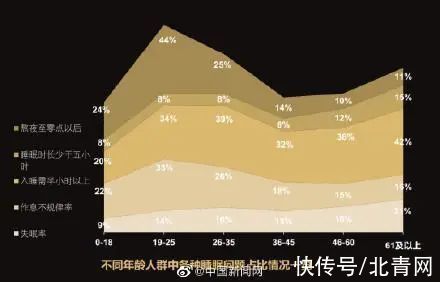
Three quarters of respondents experienced sleep disturbance
It is worth mentioning that, Difficulty falling asleep has become the top sleep problem for respondents, with nearly three-quarters of respondents experiencing sleep disturbance.
According to the survey, residents in first-tier cities go to bed the latest, with an average sleep time of 6.94 hours; residents in third-tier cities and below sleep the earliest, with an average sleep duration of 7.15 hours; the average sleep time in second-tier cities is 6.78 hours, However, the proportion of residents in second-tier cities who feel they sleep poorly or very poorly is significantly higher than in other cities.
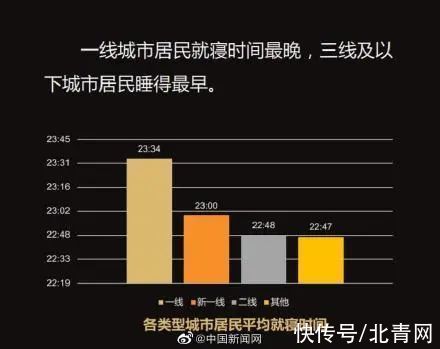
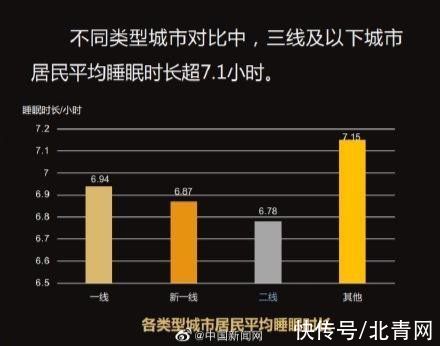
High school students sleep an average of 6.5 hours
The overall sleep duration of primary and secondary school students is still insufficient
The “White Paper” shows that the average sleep time of the surveyed high school students is only 6.5 hours, and the average sleep time of junior high school students is 7.48 hours , 7.65 hours for primary school students.
In March 2021, the Ministry of Education promulgated the “Sleep Order”, and in July of the same year, the “Double Reduction” policy was introduced. After the sleep order + double reduction policy, 60% of primary and secondary school students’ sleep time increased to varying degrees, of which 9.41% had an increase of more than 2 hours; 21.66% had an increase of 1 to 2 hours; and 28.88 had an increase of 0 to 1 hour. %.
The “White Paper” shows that while the average sleep duration of 60% of primary and secondary school students increases, the proportion of sleep less than 8 hours is also increasing, indicating that the difference in sleep duration among primary and secondary school students is decreasing, but the overall Still not enough time.
The survey pointed out that the main reason for the reduction of sleep time among teenagers is after the reduction of study pressure, many students allocate sleep time to electronic products and entertainment, entertainment In lieu of study pressure, this has also become the number one reason for teens going to bed late. Over 60% of the surveyed teens use their sleep time to play mobile phones, play games and watch dramas. Only 27% of the teens surveyed compress their sleep time to do homework and study.
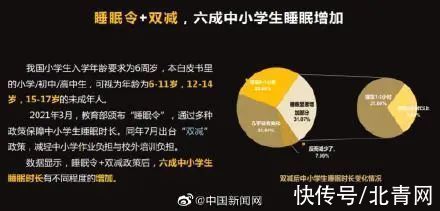
Which industry is the most sleep-deprived?
The survey shows that the people’s police are the least sleepy, with 58% of them not sleeping well.
74% of service staff work more than two hours at night to deliver food and deliver people by car.
Entrepreneurs, entrepreneurs, and self-employed individuals accounted for 52% of irregular work and rest, and 57% of them slept soundly.
69% of doctors get up before 7am, of which 49% sleep less than 6 hours.
More than 60% of the epidemic prevention personnel sleep less than 7 hours.
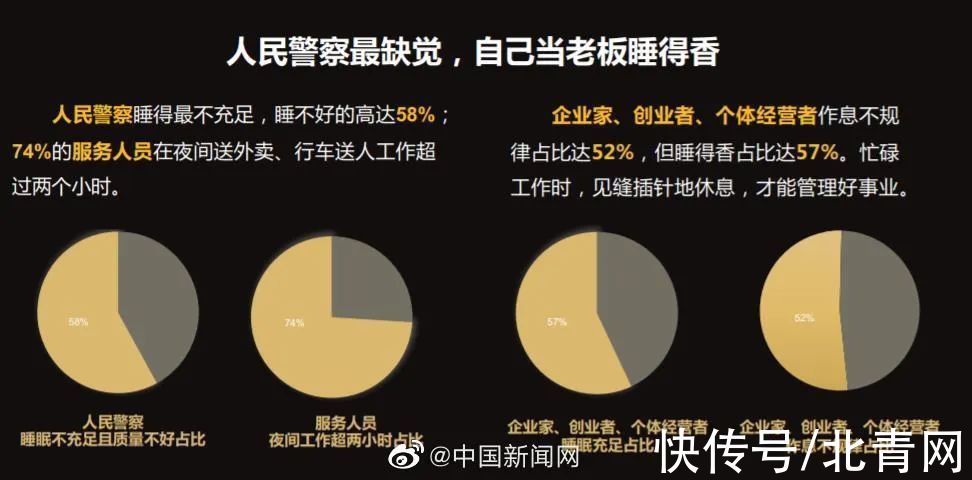
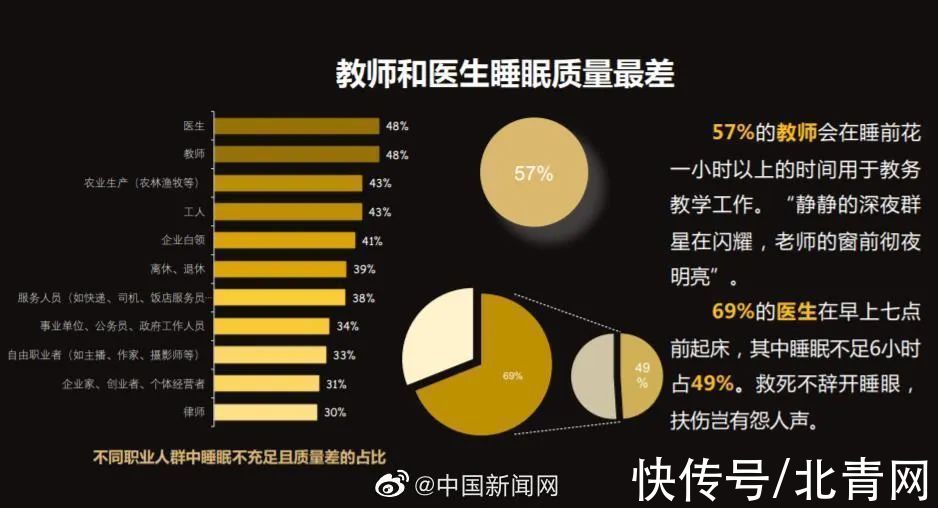
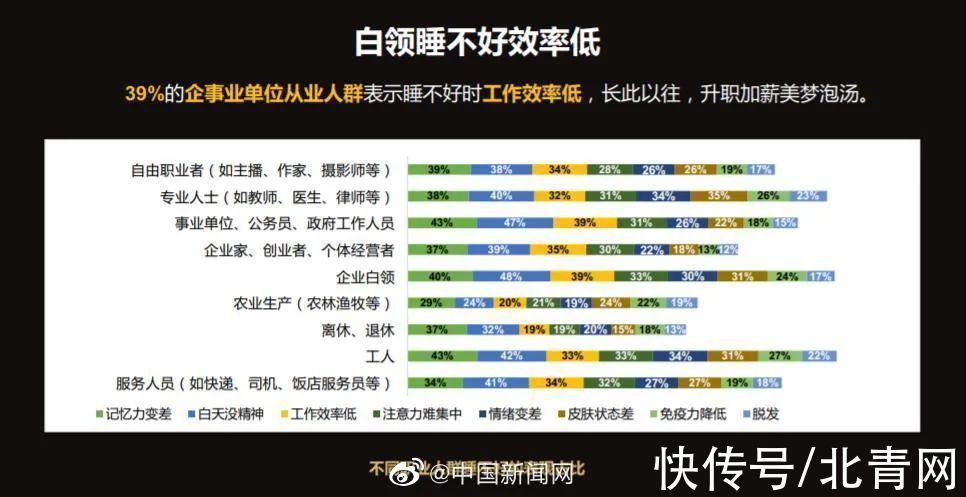

Netizens leave comments

How many hours do you sleep every day?
Do you have a sleep disorder? strong>
Let’s talk in the message area!
Comprehensive Morning News, China News Network, China Youth Daily, Netizen Comments, etc.